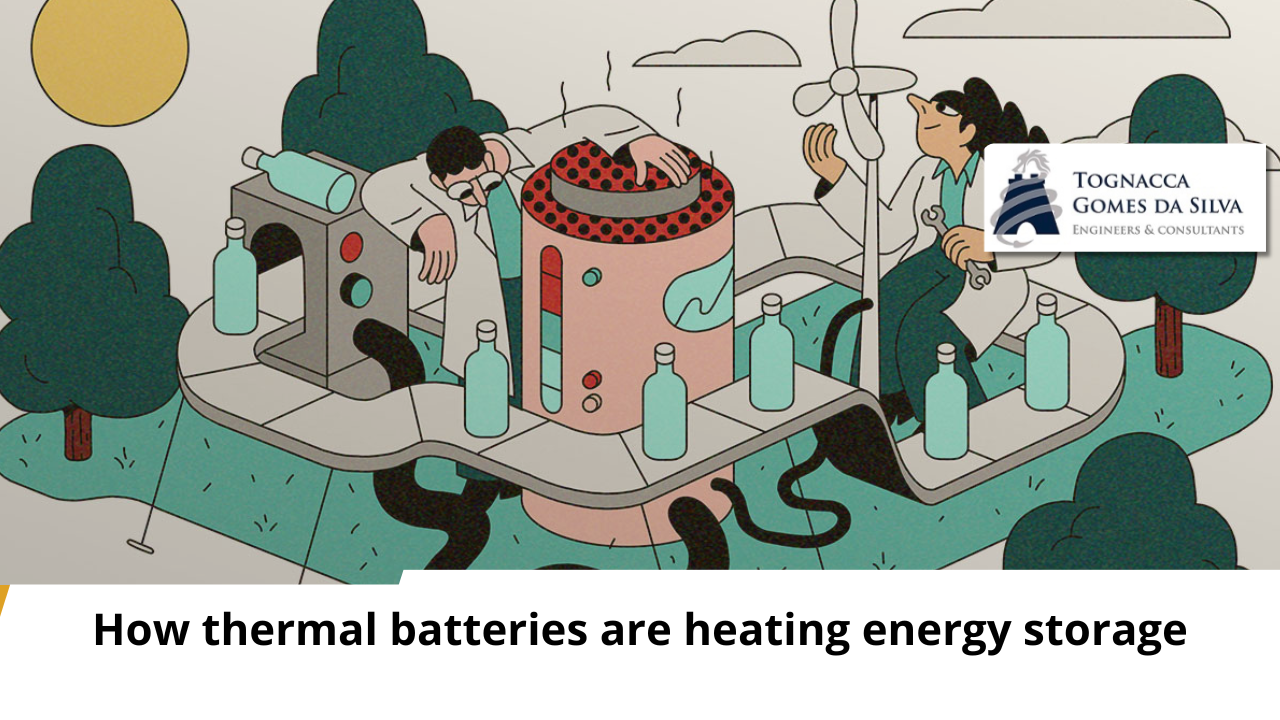We need heat to produce everything from steel bars to ketchup packets. Currently, 20% of global energy demand is used to produce heat used in industry. Most of it is generated by burning fossil fuels. In an effort to improve the industry, a growing number of companies are working to provide this heat with a technology called thermal batteries.
Storing energy as heat isn’t a new idea — steel mills have been capturing waste heat and using it to reduce fuel demand for nearly 200 years. But a changing network and advancing technology have increased interest in this field. “This is a hot area,” says Jeffrey Rissman, senior industry director at Energy Innovation, an energy and climate research and policy firm.
Renewable energy sources, such as wind and solar, have seen a significant drop in prices over the last decade. However, these energy sources are inconsistent, subject to daily and seasonal patterns. Therefore, with the rise of cheap renewable energy, there has been a parallel push to find ways to store it for applications that require a consistent power source.
Rondo Energy is one of the companies working to produce and deploy thermal batteries. The company’s heat storage system relies on a resistance heater, which transforms electricity into heat using the same method as a space heater or toaster, but on a larger scale and reaching a much higher temperature. This heat is then used to heat carefully designed and arranged stacks of bricks that store the heat for later use. The air blown over the hot bricks can then be used to generate steam or supplied directly to heat the equipment.
By using common materials and designing equipment that can work with existing installations, Rondo is working to show that its technology can integrate into an industry where cost is key. “We’re proving that this is cost-effective right now,” says John O’Donnell, the company’s CEO.
Rondo has been running its first commercial pilot at an ethanol plant in California since March 2023. The company is also scaling up, manufacturing equipment at a plant in Thailand that has already announced expansion plans.
In a recently announced project with beverage company Diageo, Rondo’s thermal batteries will be installed at a Kentucky whiskey distillery where Bulleit bourbon is produced, along with one of Diageo’s other facilities. In March, the project received a boost from the U.S. Department of Energy, which selected it to receive $75 million in funding as part of a larger effort to clean up industrial emissions.
Rondo is far from the only competitor in the thermal battery space, which now includes companies that use everything from molten salt and metal to crushed rocks to store heat.
Electrified Thermal Solutions is building thermal batteries that use thermally conductive bricks as a heating element and storage medium. The passage of an electric current through the bricks generates heat, without the need for any separate components. Similarly, Antora Energy uses its carbon-based blocks to generate and store heat. The company also aims to transform this heat into electricity using thermophotovoltaic technology.
While many companies want to install their storage solutions in industrial facilities, providing heat, electricity or both, some aim to offer grid-based energy storage for utilities. Malta, which spun out of X (formerly Google X) in 2018, is developing technology that will absorb electricity, store the energy as heat in a molten salt system, and then re-generate electricity for use on the grid.
Brenmiller Energy is among the most experienced players in thermal energy storage. The company, founded in 2011, makes modular systems that use crushed rocks to store heat. Its technology is currently in operation at several facilities, including a beverage manufacturer and a hospital.
To make a difference to industrial emissions, companies that build thermal energy storage systems need to grow quickly. They will also have to convince customers to embrace a new method of producing heat, a potentially difficult task in industries that can be conservative, says Doron Brenmiller, the company’s commercial director. Thermal batteries could be a key strategy to keep factories growing as efforts to reduce their emissions intensify.
( fonte: Casey Crownhart/ MIT Technology Review )



